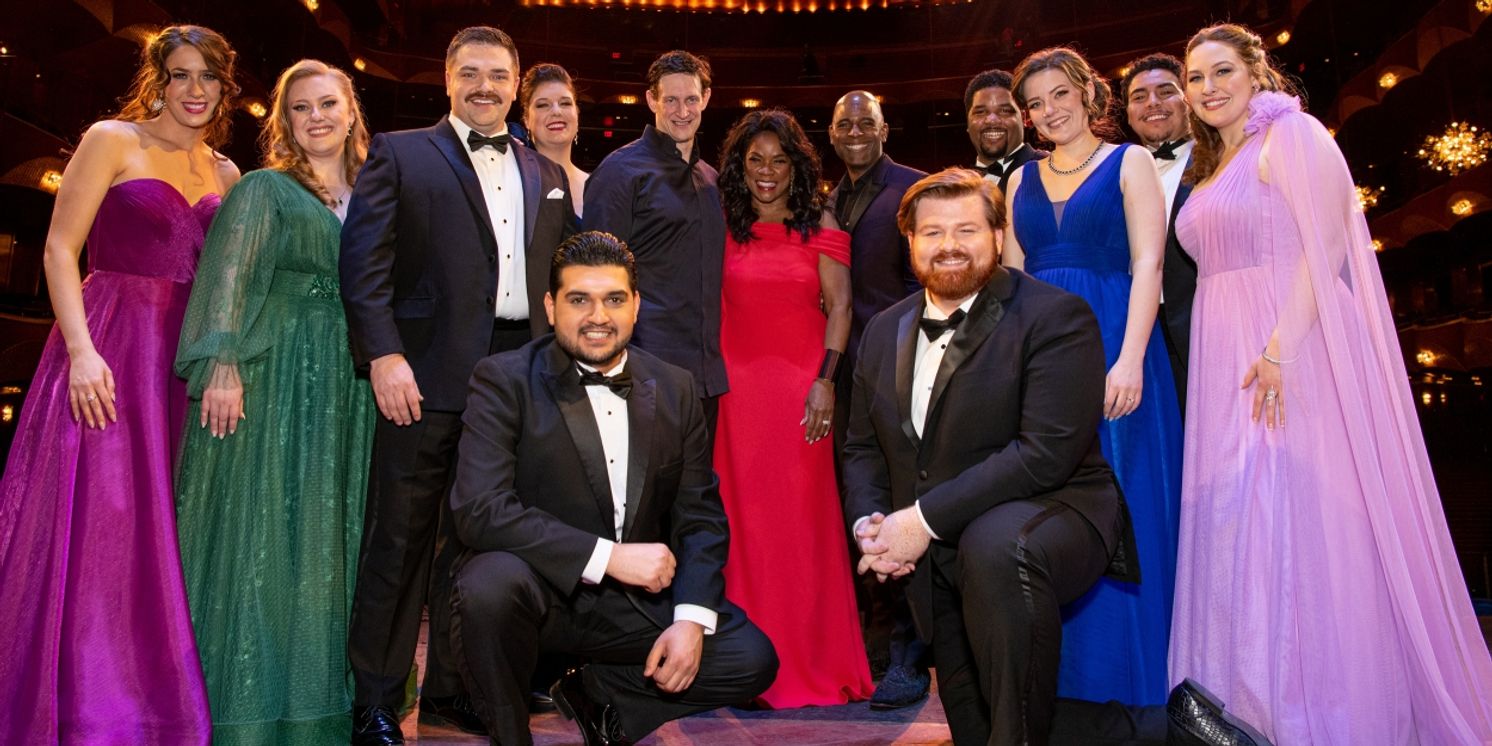Review: Met's Laffont Competition Unleashes New Artists on Grateful Audience
Composer Frank Loesser Wrote, “Luck Be a Lady”: Not Necessarily at the Met

No matter how many “star” performances the Met manages to muster in the course of a season, there’s nothing quite as exciting as the Laffont Grand Finals Concert—formerly known as the Met’s National Auditions Finals. It took place this past Sunday afternoon for its 70th season, when we got to hear up-and-comers who might have knocked our socks off at the concert itself or could at some time in the future.
Not only that. These annual concerts bring us closer to some gems in the operatic repertoire that we might have not heard for a long time (some, never before)—and remind us of performances by stars of seasons past that we may still thinking about, perhaps decades after we heard them live.
And, maybe, most importantly, they help to remind us how much of a crap shoot the whole business is. When it came time to announce the “winners”—and believe me, every single one of them is, since the ten in the concert were culled from 1500 who applied for the competition, the approximately 900 who made the regional rounds, and, more recently, the 19 semifinalists—I found that of the day’s 10 finalists, I had agreed with only two of the five who won the grand prizes of $20,000. (The others took home $10,000.) I looked back at last year’s competition, when there were six winning the grand prizes, and also found that I also only agreed with two.
The conclusion: I felt happy for those who made the final cut and a bittersweet happiness for those whose fates were left to a small group of judges (wondering about their criteria) but who had made it this far.
Taking a look back at my notes from the concert, some of the qualities I described in the singers I admired were “powerful,” “good breath control,” “soaring,” “velvety,” “clear,” “caressing,” “thoughtful,” “resonant,” “elegant,” “poised,” and “accurate.” I won’t say which I attributed to whom—I don’t believe that this is an occasion for negative feedback to go along with the good—I will give them all a “Bravo!”
Here are the winners and the composers who they brought to support them:
Tenor Daniel Espinal, performing Gounod’s “Salut! Demeure” from FAUST and Verdi’s “De’ miei bollenti spiriti” from TRAVIATA. (One of two “babies” on the program, at 24.)
Soprano Lydia Grindatto, in Tchaikovsky’s “Tatiana’s Letter Scene” from ONEGIN and Verdi’s “Sempre libera” from TRAVIATA.
Baritone Navasard Hakobyan, with Gounod’s “Avant de quitter ces lieux” from FAUST and Tchaikovsky’s “Ya vas lyublyu” from QUEEN OF SPADES.
Mezzo Meridian Prall, singing Gounod’s “O ma lyre immortelle” from SAPPHO and Mozart’s “Parto, parto” from CLEMENZA DII TITO.
Soprano Emily Richter, who did Mozart’s “Non mi dir” from DON GIOVANNI and Charpentier’s “Depuis le jour” from LOUISE.
The rest of the group included:
Tenor Nathan Bowles, singing Puccini’s “Ch’ella mi credi libero e lontano” from FANCIULLA and Wagner’s “Morgenlich leuchtend” (Walther’s Prize Song) from DIE MEISTERSINGER.
Mezzo Ruby Dribble, in Handel’s “Tu preparati a morire” from ARIODANTE and Strauss’s “Sein wir wieder gut” from ARIADNE. (A shoutout here for being first on the program and not showing a nano-gram of nerves.)
Soprano Tessa McQueen, who did Mozart’s “Mi tradi” from DON GIOVANNI and Floyd’s “Ain’t it a pretty night?” from SUSANNAH.
Tenor Demetrious Sampson, Jr., with Verdi’s “Ah, la paterna mano” from MACBETH and Tchaikovsky’s “Kuda, kuda, kuda” from ONEGIN. (He was the other 24-year-old.)
Tenor Eric Taylor, performing Bizet’s “Flower Song” from CARMEN and Puccini’s “Torna ai felici dì” from LE VILLI.
The Met Orchestra, did its usual outstanding job in the concert, under Evan Rogister, turning on a dime to keep up with the changing styles of the composers being highlighted and helping the youthful performers stay on track.
I salute those on the program who took chances with their selections, without regard to their degree of success with the music or language, but wish there was more recently composed music in the concert, especially now that Met audiences have shown at least some interest in works that were written more recently than Puccini or Strauss. And while Carlisle Floyd may have died in 2021, his SUSANNAH—the most “modern” piece on the program—premiered in 1955, almost 70 years ago. Much great music has been written since then.
While the judges did their final consultations over the prize-winners, bass-baritone Ryan Speedo Green—a former winner of the competition—gave a stellar reading of Wagner’s “Die frist ist um” from DER FLIEGENDE HOLLANDER, showing the kind of talent that is waiting to be discovered and nurtured. Mezzo Denyce Graves, a former competition alumna herself, was host for the event.
Caption: The Eric and Dominique Laffont Grand Finals Concert
Back row (l to r): Lydia Grindatto, Meridian Prall, Eric Taylor, Emily Richter, Maestro Evan Rogister, Host Denyce Graves, Guest Performer Ryan Speedo Green, Demetrious Sampson, Ruby Dibble, Daniel Espinal, Tessa McQueen
Front (l to r): Navasard Hakobyan, Nathan Bowles
Credit: Natalie Powers/Met Opera
Reader Reviews
Videos

